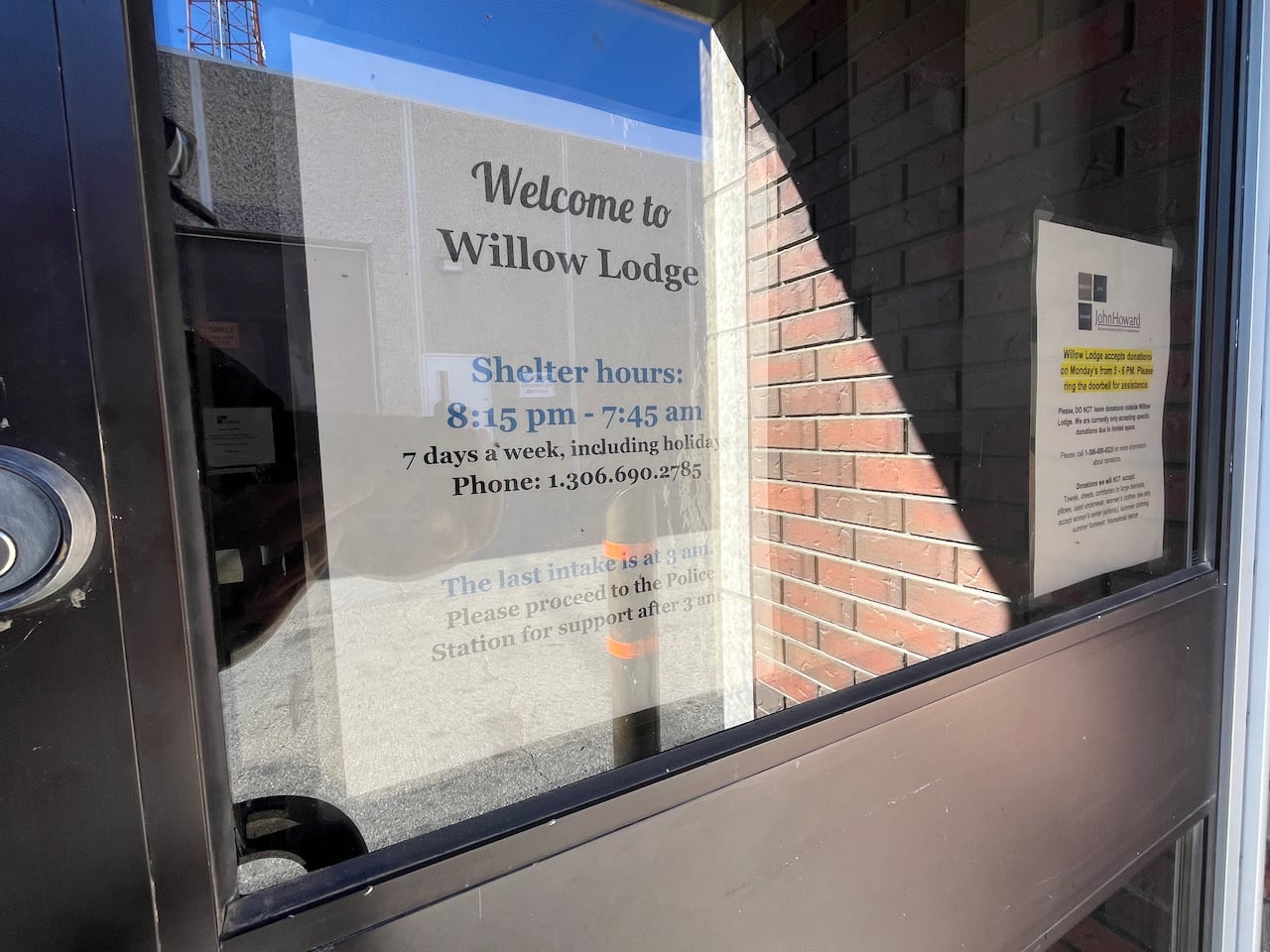The Government of Saskatchewan has thrown into confusion the future of a shelter in downtown Moose Jaw by contradicting a relocation announcement initially confirmed by Premier Scott Moe and Justice Minister Tim McLeod.
At a press conference organized by the province on Wednesday, Mayor James Murdock announced the Ministry of Social Services had directed that the 15-bed Willow Lodge shelter be moved out of the city’s downtown.
“The downtown core and district is vital to the operation of the city and for enhancing what we offer for services,” said Murdock. “The [Ministry of Social Services] feels that the best way for that to be achieved is to see that a permanent temporary shelter be relocated in an appropriate area.”
Moe and McLeod spoke after Murdock for approximately 10 minutes. They did not deny Murdock’s statement.
“The request of the city is really to work together with the Ministry of Social Services to identify a location that the city feels is appropriate,” said McLeod.
Hours later, a government spokesperson issued a statement that the Ministry of Social Services had “not provided a directive to relocate the shelter.”
“Meetings have taken place with the mayor and local community members to discuss concerns, and those discussions will continue to support a co-ordinated approach that meets community needs,” the statement said.
CBC has asked for further clarity. No response has been provided.
Taken by surprise
At Wednesday morning’s news conference, nearly everyone appeared to be surprised by the relocation announcement, including Murdock.
When asked to identify an appropriate location for a shelter to be located, Moose Jaw’s mayor responded that was a “very good question,” while adding he’d just been informed of the decision that morning.
McLeod, who is the MLA for Moose Jaw North, confirmed that he and Megan Patterson, MLA for Moose Jaw Wakamow, had received a number of direct requests to move the shelter out of downtown.
The Willow Lodge shelter opened in early 2024 as part of an effort by the provincial government to address the growing issue of homelessness in Saskatchewan by opening temporary shelters.
As part of the program, the province would collaborate with municipalities. The municipalities would find a location while the province would fund the spaces, according to McLeod.
“That continues,” McLeod said on Wednesday.
The Willow Lodge shelter is operated by the John Howard Society of Saskatchewan, which did not have a representative at the news conference on Wednesday.

Shawn Fraser, the society’s CEO, confirmed later on Wednesday that he only found out about the decision when contacted by CBC News.
Fraser said there’s no doubt Moose Jaw has a homelessness problem and that the shelter is one way of addressing the issue.
“It’s not clear to me how moving the shelter to a new location that might actually be harder for people to access is going to do anything to solve Moose Jaw’s homelessness problem,” Fraser said.
City officials in Moose Jaw, including the mayor, said they were surprised when they learned the province was directing that the Willow Lodge shelter be relocated out of the city’s downtown. Justice Minister Tim McLeod said the decision was based on feedback from local businesses and residents, but within hours, the province attempted to retract statements made at an event in the city on Wednesday morning.
‘We’re a tourist town’
Alex Carleton, the chair of the Moose Jaw Downtown Association, also spoke at the news conference Wednesday morning.
“There’s a lot of passionate business owners that are worried about their livelihood and, you know, we’re trying to come up with ways to be compassionate and work with people in our community,” Carleton told reporters.
“We’re a tourist town and we want to make sure that we’re going in the right direction for our businesses as well.”
At the news conference, the premier insisted relocating the shelter would not reduce services and that it would actually enhance them.
Moe said the province is “unfortunately” in the shelter business due to the “poisonous drugs” in the province’s communities.



